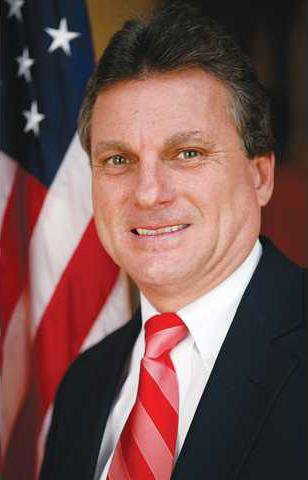Though it sits just 90 miles to our southernmost point, travelling to Cuba is like traveling back in time. On a recent mission there. I was struck immediately by what we would consider antique cars and crumbling buildings that date back to the 1950s.
This is an important time to visit Cuba as the Obama administration continues efforts to normalize relations with the Castro regime. I was joined by four other members of Congress there to answer the same questions as me:
What’s changed?
The first sign of the shifting dynamics between our countries came almost immediately. In meetings with Cuban officials, we were welcomed through the front door and met in a room with American and Cuban flags on the table — something our hosts, the Center for Democracy in the Americas, made clear would not have happened until recently. Much was said in these meetings about how lifting the embargo would benefit Cuba, but strikingly absent was how things had changed there.
Some of the most eye-opening experiences of the trip were interacting with individual Cubans. Whether meeting with the Cardinal of Havana or Afro-Cuban rappers, all the evidence of censorship was clear, but no one accepted that it was taking place. It begs the question whether some had heard stories for so long that they had convinced themselves that what the Castro regime has been telling them is true.
We met with some entrepreneurs who had been allowed to open businesses such as a taxi service, auto repair service and paladors — small restaurants people open in their homes. It was promising to hear of their success until we were told about one palador who was forced to close their business for several months because it had become too successful.
While at another palador, I had the opportunity to sit between an 83-year-old retired journalist who had been part of the underground movement during the revolution of 1959 and a 23-year-old student. It was striking that both, despite the distance in their years, laid the majority of the blame for the problems facing Cuba squarely at the feet of the U.S., the embargo and capitalism.
Whether these individuals were truly speaking their minds or were somewhat hesitant to express their true sentiments for fear of retaliation was hard to determine. What is not, however, is that they deserve the freedom and opportunity they are currently being denied.
On this front, the Cuban government has signaled very little change in my opinion. Since 2014, the Castro regime has put 9,000 Cubans in prison for “political crimes.” More than 2,000 of these arrests have come since President Obama’s push to pursue normalization.
I went to Cuba with an open mind, and although I believe the people of Cuba want and need the embargo lifted, I returned reaffirmed in my belief that President Obama is misguided in his effort to normalize relations between our countries at this time.
This column originally appeared in the Atlanta Journal-Constitution.





